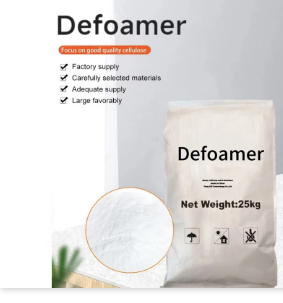
Effective Use of Antifoaming Chemicals
Antifoaming chemicals are essential in modern manufacturing processes. Foam in liquids can reduce efficiency, damage equipment, and affect product quality. By incorporating antifoaming chemicals, industries such as food, beverage, pharmaceuticals, and chemicals can maintain smooth operations. These chemicals break down bubbles quickly, preventing foam accumulation in tanks and pipelines.
Industrial teams often face challenges when foam slows production lines. With antifoaming chemicals, production continues without interruption, saving time and reducing labor costs. They also minimize the risk of overflows, which can cause spills and equipment damage. For industries with continuous processes, this is a practical and reliable solution.
In addition, antifoaming chemicals help maintain consistent product quality. Foam can trap air or contaminants, affecting texture, density, or chemical reactions. By using antifoaming chemicals, manufacturers achieve more uniform results, whether producing beverages, coatings, or liquid detergents.
Furthermore, these chemicals reduce cleaning frequency and maintenance needs. Foam buildup often requires more frequent cleaning of tanks, mixers, and pipelines. Antifoaming chemicals prevent excessive foam formation, decreasing downtime and operational costs.
Chemical Antifoam Agent Enhances Production
A chemical antifoam agent is a targeted solution for controlling foam in various industrial processes. These agents are formulated from silicone, organic compounds, or surfactants, each designed to work in specific conditions. They destabilize foam, allowing bubbles to merge and collapse, effectively clearing liquid surfaces.
Chemical antifoam agents are widely used in fermentation, wastewater treatment, and chemical manufacturing. Foam in these processes can hinder mixing, reduce oxygen transfer, or interfere with reactions. By adding a chemical antifoam agent, operators can ensure smoother processing and consistent product output.
For equipment protection, chemical antifoam agents prevent foam-related overflows, spills, and corrosion. They are practical in large tanks, pipelines, and mixers, where uncontrolled foam could otherwise cause costly damage.
In production environments with strict quality requirements, chemical antifoam agents help maintain product integrity. For example, in the beverage industry, they prevent foam from affecting filling lines, ensuring accurate volume and consistent taste.
Using chemical antifoam agents also increases operational efficiency. With reduced foam issues, production lines run faster, maintenance is minimized, and the overall cost per unit decreases. This makes chemical antifoam agents a practical and popular choice across industries.
Examples of Anti Foaming Agent in Action
Examples of anti foaming agent demonstrate their versatility in industrial applications. In the food and beverage sector, silicone-based anti-foaming agents prevent froth during mixing, filling, and packaging. This ensures smooth operations and prevents spillage.
In wastewater treatment, examples of anti foaming agent include polyether-modified siloxanes, which control foam in aeration tanks. By reducing foam, these agents improve oxygen transfer and enhance treatment efficiency, making them essential for municipal and industrial plants.
In chemical manufacturing, examples of anti foaming agent are non-silicone surfactants that control foam during reactions. These agents stabilize the process, ensuring uniform reactions and consistent product quality.
Even in pharmaceuticals, examples of anti foaming agent prevent foam in liquid formulations and mixing vessels. This is critical for accurate dosing, precise mixing, and high-quality end products.
These examples highlight that anti foaming agents are practical tools for industries aiming to optimize efficiency, reduce waste, and improve product quality.
Examples of Antifoaming Agents Reduce Operational Cost
Examples of antifoaming agents show how different types of agents are tailored for specific applications. Silicone-based agents are effective for long-lasting foam control in challenging environments. Organic compounds work well in food and beverage applications, while surfactant-based agents are useful in chemical and pharmaceutical processes.
By choosing appropriate examples of antifoaming agents, industries reduce operational costs. Foam-related interruptions, cleaning frequency, and equipment wear are minimized. Production lines can operate continuously, with fewer delays and lower labor requirements.
In addition, examples of antifoaming agents help improve safety. Foam overflows can cause slippery surfaces, chemical spills, or equipment malfunctions. By preventing foam, these agents reduce accidents and ensure safer working environments.
For industries focusing on sustainability, examples of antifoaming agents contribute to lower chemical usage and waste. Optimized foam control means less corrective measures, reduced material loss, and more efficient resource utilization.
Using proper antifoaming agents also enhances product quality. Smooth, foam-free liquids improve mixing, packaging, and performance, ensuring consumer satisfaction and regulatory compliance.
Antifoaming Chemicals FAQs
What are antifoaming chemicals used for?
They are used to reduce or prevent foam in liquids during industrial processes, ensuring smoother operation and consistent product quality.
How does a chemical antifoam agent work?
It destabilizes foam by causing bubbles to merge and collapse, effectively eliminating excess foam in tanks, mixers, and pipelines.
Can antifoaming agents be used in food and beverage industries?
Yes, food-grade antifoaming agents are widely used to control foam during mixing, filling, and packaging, ensuring consistent quality and accurate volume.
What are common examples of anti foaming agent?
Silicone-based agents, polyether-modified siloxanes, and surfactant-based agents are common, each suitable for different industrial applications.
Where can I buy high-quality antifoaming agents?
You can purchase them through certified suppliers or official company websites. Browse product options online to find suitable antifoaming chemicals for your process.
-
Hydroxypropyl Starch as a Sustainable Construction AdditiveNewsNov.24,2025
-
The Gelation Properties of CMCNewsNov.21,2025
-
Redispersible Latex Powder and Water Retention CapacityNewsNov.21,2025
-
Dosage Control for Polycarboxylate Water ReducerNewsNov.21,2025
-
Film-Forming Properties of Polyvinyl AlcoholNewsNov.21,2025
-
The Function of Gypsum Additives in MortarNewsNov.21,2025





















